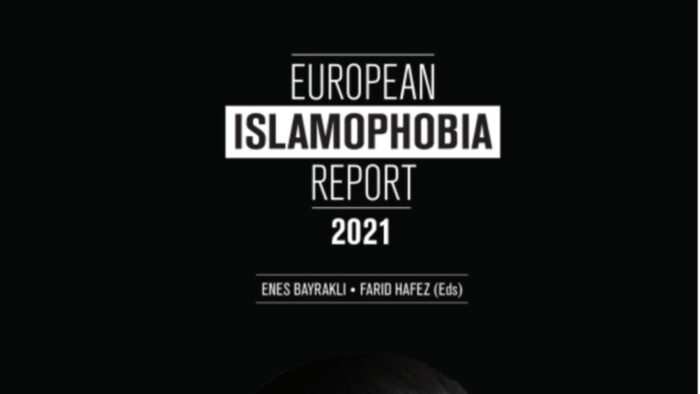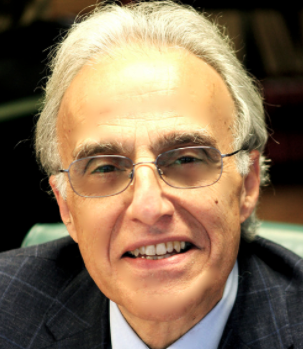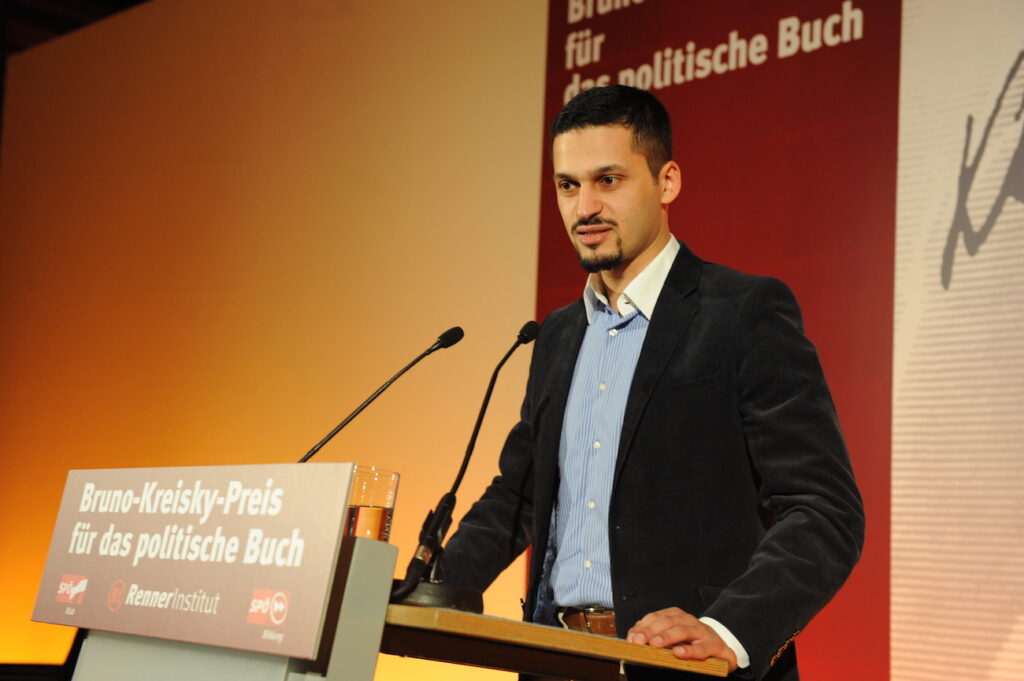On 17 September 2021, prominent Austrian Islamophobia researcher Farid Hafez, who has been an established member of the US academic community for several years, published a Facebook post announcing he had recently relocated to Williamstown, Massachusetts to take up a visiting professorship at the local Williams College. An investigation by the Global Influence Operations Report (GIOR) has found that Hafez, who had been accused of being a member of the Muslim Brotherhood in his home country, has networked with several US academic organizations to publish a controversial report on Islamophobia in the European Union, including some tied to a known US Hamas supporters. According to his Facebook post:
Next chapter Williams College Looking forward to teaching as Visiting Professor of International Studies || Massachusetts 🇺🇸
Read the post here.
Hafez is currently teaching two courses on Religion, Politics, and anti-Muslim Racism as part of the college’s Global Studies Program. In the coming months, Hafez is scheduled to participate in several US academic panels, including a March 2022 Holocaust Remembrance Day event at the Manhattan College dealing with the rise of violence against Jews and Muslims across Europe.
Farid Hafez is a founding member of the Muslimische Jugend Österreich, an Austrian Muslim youth organization known to have been a member of the Forum of European Muslim Youth and Student Organizations, the youth/ student Global Muslim Brotherhood in Europe. He has been a visiting professor of Austrian-American Studies at the University of California, Berkeley and in spring 2017, gained academic attention as a senior non-resident researcher at the Georgetown University’s Bridge Initiative. The Initiative’s staff includes multiple individuals tied to US Muslim Brotherhood groups, such as the Council on American-Islamic Relations and the Islamic Society of North America.
On 3 January 2022, Hafez announced the publication of this year’s edition of the annual “European Islamophobia Report” (EIR), which he co-edits and until recently published by the SETA Foundation for Political, Economic, and Social Research, a Turkish think-tank part of the Turkish influence network and closely linked to President Erdoğan. The EIR is comprised of a large number of country-specific Islamophobia reports authored by academics based throughout the continent and has been criticized for not meeting scientific standards and trying to silence anti-Islamist activists. This year’s report, whose cover displays French President Emmanuel Macron, warns that the continent’s political center had become more “extreme” and that Islamophobia had become socially acceptable in Europe, pointing to the November 2020 closure by French authorities of the French Islamist influence operation Collectif Contre L’Islamophobie en France (CCIF).
For its 2018 EIR, SETA received more than 120,000 euros from the European Commission, which drew criticism from several European human rights activists mentioned in the report. As of this year, the EIR is no longer being published by SETA for unknown reasons. The report identifies its new publisher as Vienna-based Leopold Weiss Institute, co-headed by Hafez.
A GIOR investigation found that among the new US cooperation partners are two organizations headed by Hatem Bazian, board chair of the American Muslims for Palestine, a Palestinian advocacy group with strong ties to both the US Muslim Brotherhood and to the Hamas support infrastructure in the US:
- International Islamophobia Studies Research Association, a Berkley-based research body incorporated in 2021 and led solely by Bazian.
- Islamophobia Studies Center, a Berkley not-for-profit research organization aimed at “countering the presence of Islamophobia in society” through applied research and education.
Hatem Bazian is a co-founder and Professor of Islamic Law and Theology at Zaytuna College and a lecturer at the University of California, Berkeley. In addition to his academic work, he is also a weekly columnist for the Daily Sabah newspaper, a Turkish pro-government publication, and a board member of the Muslim Legal Fund of America, tied to the Muslim Brotherhood in the US. An April 2004 antiwar rally video shows Bazian calling for an “Intifada” in the US. More videos from the same conference show Bazian talking about the “Arabs who are coming to help” in Iraq. Dr. Bazian later claimed that his remarks on a US Intifada were misunderstood.
In November 2020, the GIOR reported that Hafez was a key suspect in Austrian police raids targeting a large number of Islamic organizations and individuals suspected of ties to the Muslim Brotherhood and Hamas. Hafez subsequently drew media criticism over authoring an article saying the raids undermined the credibility of Austrian efforts to commemorate the 1938 pogroms targeting Austrian Jews and stating the country was on a “dangerous path towards repeating history.” In the following year, Austrian courts ruled that several of the raids were unlawful due to non-sufficient evidence presented by the prosecution.
In January 2021, the GIOR reported that a committee supporting Hafez included two US academics with a long history of support for the Muslim Brotherhood. In August 2021, the GIOR reported that in an Austrian media interview, Islamic scholar Amir Zeidan accused Hafez and another Austrian Muslim youth activist of having sworn an oath of allegiance to the Muslim Brotherhood, adding that he felt threatened by messages about him that Hafez had circulated for testifying before the authorities after the November 2020 raids. Hafez has publicly denied any allegiance to the Muslim Brotherhood and other Islamist movements.
Correction: An earlier version of this article stated that the European Islamophobia Report received EU funding from 2019–2021, however it only received this funding for its 2018 report. The article also named Enes Bayraklı as the SETA Foundation’s Brussels Coordinator, however, he resigned from the SETA Foundation in June 2021.












